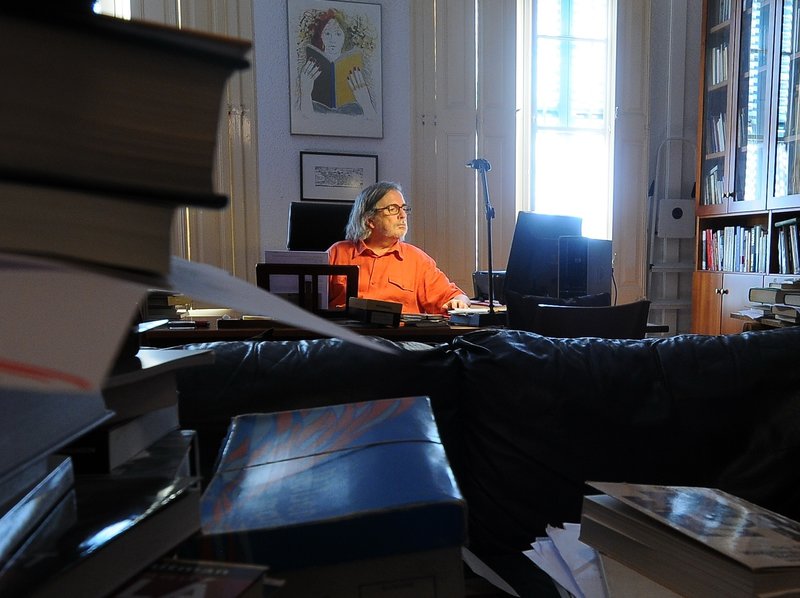Interview
Agustí Pons
'The aim is to build a life, not research'
One of Catalonia's most experienced biographers, Pons has written the lives of Joan Triadú, Pere Calders, Maria Aurèlia Capmany, Nèstor Luján, Raimon Noguera and Salvador Espriu.
How did you approach your first biography?
It was commissioned by Joan Triadú's estate and the experience went so well that I thought I would do the same with Pere Calders. Then came Maria Aurèlia Capmany, followed by Nèstor Luján, Raimon Noguera and finally Salvador Espriu. They are all biographies I wanted to do because they were people from the generations immediately before mine, and who I owe a great deal.
What is the hardest thing about telling a life story?
Finding the main thread. I am a journalist, not a scholar. One of my masters is Stefan Zweig: he always finds a thread that seems true to the reader. We cannot call it a real thread because no matter how close you want to get to the subject, a biography is always just an approximation, as people's lives are so complex. I defend the work of good biographers, who has to master history, literature, sociology, psychology, without forgetting narrative techniques.
What is your model, is it more scientific or literary?
A problem with biography is that there are no models. At least that is what I think from the criticisms I have received, especially from academics. In the university, biography is seen as research, which is not exactly what it is. Biography is putting the work of a figure within reach of the reader, and that sometimes requires research, and in other cases not. Research is not the main aim; it is to build a life.
So you don't research?
For the biography of Néstor Luján I had to do a lot because many of his articles had not been published. In the book I focus on what he was writing, unlike in the biography I did of Salvador Espriu, whose complete works had been published in 10 volumes, as well as there being hundreds of studies. In that case, more than finding something new, it was about bringing his contributions together and put it within the reader's reach. Then it was criticised for not offering anything new. The reader comes first, meaning we must include everything that will help them to understand the subject's life.
There must also be a process of self-censorship.
This is the problem I have found. I would have liked, for example, if certain sectors of the academic world had helped me, to see where the limits are. My conclusion is that I have to put in all the substantial data so as to better understand the subject.But what are they? On the other hand, a biographer, in a small country, has to make sure that when he writes a biography he will be able to do another one... obviously you have to step carefully.A lot can be said, even if the reader does not see it at first. The proof is that I have had some problems with more than one biography.
Is it a risky genre?
Totally. Moreover, the biographer has to do everything: find sponsors, a publisher, resolve legal matters; it is tough work and not profitable. The country needs to be aware that writing a biography is not cheap if you want first rate work, like the biographies of Paul Preston.
What about sources?
Oral testimony was fashionable, but if you don't know what you want from witnesses it can be a waste of time. It is not their fault; we all have a selective memory. I have often found after publishing a biography that people tell me: “It wasn't exactly like that.” There are always witnesses to provide corroboration, but they change their opinion. There are always aspects that can be revised but you can't put everything in a biography, but rather offer coherent information about the life and work of the subject.
Will you write more biographies?
I don't have any plans to write any more biographies. In September I will be bringing out a book on the meeting of Lenin, Joyce and Tristan Tzara in Zurich in 1917. So far there have only been academic studies and what I have done is look at the everyday lives of these three people who turned intellectual Europe upside down.
Leave a comment
Sign in.
Sign in if you are already a verified reader.
I want to become verified reader.
To leave comments on the website you must be a verified reader.
Note: To leave comments on the website you must be a verified reader and accept the conditions of use.

